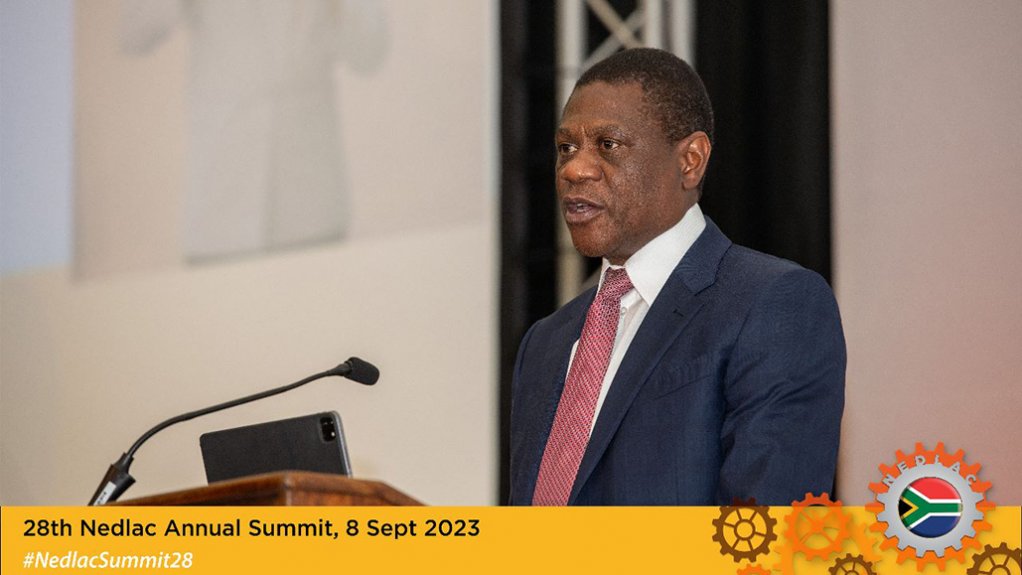With South Africa’s social partners having failed to agree the social compact that President Cyril Ramaphosa called for in his 2022 State of the Nation Address, participants in the twenty-eighth National Economic Development and Labour Council (Nedlac) summit have indicated a preference for pursuing issue-based partnerships.
Nedlac executive director Lisa Seftel said that despite broad-based agreement on the “poly-crisis” afflicting the economy there was no consensus across the constituencies of labour, business, community and government on a systemic long-term programme to turn the economy around.
This lack of a common economic vision for the future has made it difficult to achieve “the big trade-off” envisaged.
“That shouldn’t stop us from continuing to build understanding and trust, responding to key issues, and representing the best interest of our constituencies, especially in the context of adversity.
“That is the poly-response to the poly-crisis,” Seftel said, adding that new forms of social compacting should be pursued, including with a diverse group of social partners.
Deputy President Paul Mashatile also hinted to the need for a different form of social compacting based on the principles of “trust-building, transparency, pragmatism and patience”.
While acknowledging that “deadlines for the establishment of a written declaration of commitments and actions have not been met”, he said he had nevertheless witnessed encouraging moves towards social compacting.
He highlighted, in particular, the pledge made by CEOs to work with government to tackle the electricity, logistics and crime crises.
Business Unity South Africa CEO Cas Coovadia said that business supported a move toward compacting on programmes where there was the greatest scope for collaboration rather than “trying to reach grand social compacts”.
“Our success during Covid-19 was a sterling example of social compacting,” he said.
Coovadia also called for a reform to the way Nedlac operated and argued that on public policy matters, the body should “facilitate as much agreement as possible amongst stakeholders but must not try to reach consensus at all costs”.
“Where appropriate, Nedlac must recognise and appreciate progress on matters through bilateral engagements and seek to add value to those,” he added.
He agreed that South Africa was facing a poly-crisis, of low growth, coupled with high debt, joblessness and inflation, which was being exacerbated by loadshedding, a collapse in freight rail services, deteriorating security conditions, and extreme weather events.
This “toxic mix” had resulted in South Africa no longer being an attractive investment destination.
“All of this must challenge us to reflect deeply on our model of engagement as social partners.
“How can we continue with the same mode of engagement when things are falling apart?” Coovadia asked.
Labour convenor Gerald Twala, of the Congress of South African Trade Unions, argued that the economy would “not grow by some miracle with a business-as-usual approach nor will it rebound with an approach that chokes the State of the resources it needs to provide quality public services”.
“2024 will be unchartered waters, it is incumbent upon this leadership here to help steer the nation.
“Some may be tempted to grandstand and offer slogans, others may prefer to lament, neither will create a single job or rebuild a single public service,” Twala argued.
EMAIL THIS ARTICLE SAVE THIS ARTICLE ARTICLE ENQUIRY
To subscribe email subscriptions@creamermedia.co.za or click here
To advertise email advertising@creamermedia.co.za or click here











